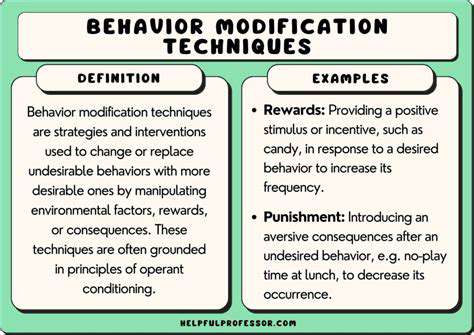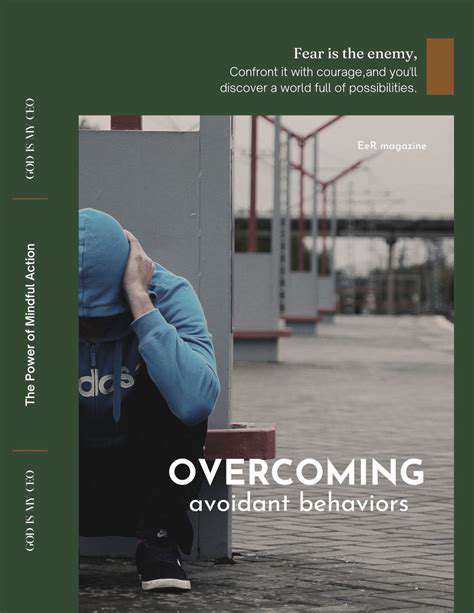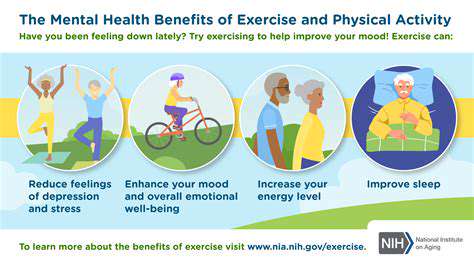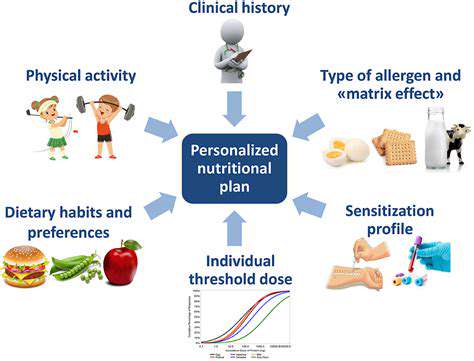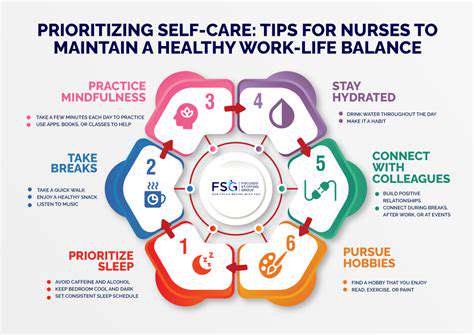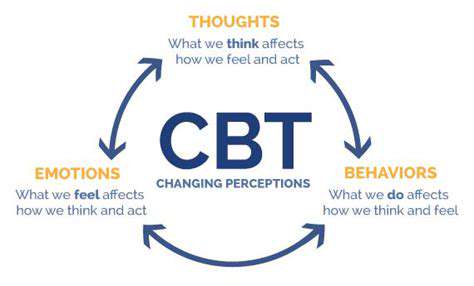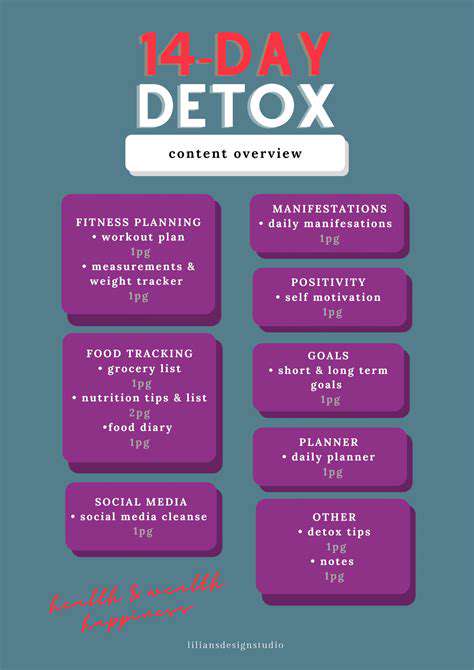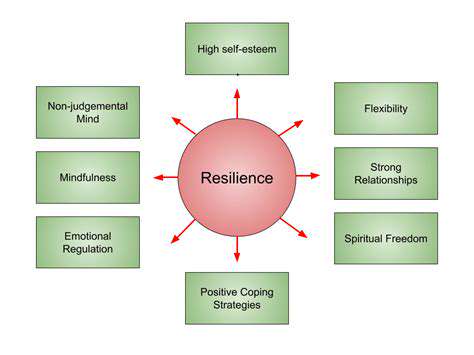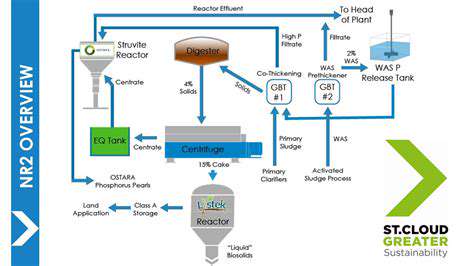Best Mental Health Apps for Therapy and Counseling
Beyond the Basic Mood Tracker: Tools for Cognitive Behavioral Therapy (CBT)
Modern applications have evolved to incorporate structured CBT techniques, offering users guided exercises for cognitive restructuring. These platforms present targeted prompts and questions aimed at uncovering negative thought cycles and replacing them with balanced alternatives. This methodical strategy proves especially beneficial for those grappling with anxiety, depression, or similar conditions where thought pattern awareness is vital. Regular use and progress monitoring can yield substantial long-term benefits.
Many applications feature structured journaling components, enabling users to systematically examine their thoughts and emotions. This introspective practice forms the foundation of CBT, and digital tools effectively facilitate this process. The structured nature of these exercises empowers users to actively participate in their mental wellness journey while fostering healthier cognitive habits.
Customized Approaches to Stress Reduction
Moving beyond basic stress logging, advanced applications provide tailored coping mechanisms. These may include guided relaxation sessions, breathwork techniques, and progressive muscle relaxation protocols. By analyzing individual stress patterns and preferences, these tools deliver personalized recommendations to build comprehensive stress management skills.
The customization aspect is critical since stress responses vary significantly between individuals. These applications acknowledge this diversity, helping users identify strategies that genuinely align with their unique experiences and needs.
Mindfulness and Meditation Integration
Contemporary mental health applications frequently incorporate mindfulness practices, offering guided sessions to cultivate present-moment awareness. These techniques can effectively manage stress and anxiety while enhancing overall psychological well-being. Regular mindfulness practice can lead to improved emotional regulation and decreased reactivity to daily challenges.
These platforms typically provide diverse meditation options, ranging from daily stress relief to preparation for difficult interactions. Consistent engagement helps users develop greater emotional balance and inner tranquility.
Peer Support and Community Engagement
Certain applications facilitate community building by connecting users facing similar mental health challenges. This peer network offers valuable emotional validation and encouragement, particularly during difficult phases of mental health recovery. Creating spaces for shared experiences helps combat isolation and promotes belonging.
The community features in these applications help users feel understood and supported by others who genuinely comprehend their struggles. This social component can significantly enhance motivation and commitment to wellness practices.
Progress Monitoring and Outcome Measurement
Sophisticated applications provide comprehensive tracking tools that monitor mood fluctuations, sleep quality, and other relevant metrics. This data-driven approach helps identify behavioral patterns and assess the effectiveness of therapeutic interventions. Visualizing progress can maintain user engagement and provide concrete evidence of improvement.
The ability to track multiple wellness indicators gives users deeper insight into their mental health patterns, enabling more informed decisions about lifestyle adjustments and therapeutic approaches.
Professional Therapy Integration
Some applications are designed to complement traditional therapy sessions. These tools allow clients to monitor symptoms, practice therapeutic techniques, and maintain connection with their therapist between appointments. This integration enhances treatment consistency and therapeutic outcomes.
By bridging the gap between professional sessions, these applications create a more continuous therapeutic experience. The ability to maintain therapeutic practices outside sessions can amplify treatment effectiveness.
Comprehensive Wellness Strategies
While digital tools offer significant benefits, they should complement rather than replace professional care. Optimal mental health requires a holistic approach incorporating lifestyle modifications, social support, and consistent self-care practices. Applications serve best when integrated into a broader wellness strategy.
Successful mental health management typically involves combining digital tools with proper nutrition, physical activity, quality sleep, and meaningful social interactions. The most effective outcomes occur when applications support these fundamental wellness pillars.
Personalized Support and Community Connection
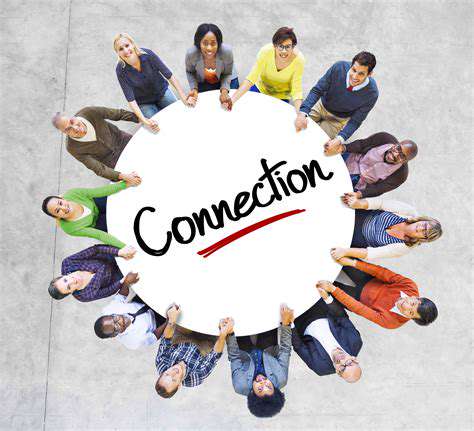
Customized Assistance for Individual Needs
Tailored support systems are essential for navigating contemporary challenges. Recognizing that each person's situation is unique, we provide customized resources addressing specific concerns and goals. Our dedicated team focuses on understanding individual circumstances to develop personalized, sustainable solutions.
This individualized approach promotes self-efficacy and active participation in personal development. By taking ownership of their wellness journey, users develop skills for long-term emotional resilience.
Developing Robust Support Networks
Quality support systems form the foundation for personal resilience and growth. We facilitate connections between individuals sharing similar experiences, creating environments where people feel validated and empowered to overcome obstacles.
Connecting with Compatible Peers
Our digital community platform enables meaningful connections among individuals facing comparable challenges. These shared experiences cultivate empathy and reduce feelings of isolation.
Interactive discussion forums and group activities encourage experience-sharing and relationship-building. These connections often provide critical support during challenging periods.
Professional Expertise and Resource Access
Access to qualified professionals distinguishes our support model. Our specialists provide customized guidance across various life domains, including psychological well-being, career advancement, and financial planning.
Educational Events and Skill-Building Workshops
Regular community events offer practical skill development opportunities. These interactive sessions deliver immediately applicable strategies while strengthening community bonds.
Inclusive and Supportive Environments
We prioritize creating welcoming spaces where all members feel comfortable seeking support. Our community standards emphasize respect, empathy, and understanding as fundamental values.
We actively cultivate diversity and ensure all perspectives receive consideration. Our objective is building networks that embrace individuals from varied backgrounds.
Acknowledging Progress and Achievements
Recognizing accomplishments, regardless of scale, reinforces motivation and self-confidence. Our community celebrates member successes, providing encouragement for continued personal development.
Accessibility and Convenience: The Advantages of Digital Support
Efficient Information Availability
Digital mental health resources provide unprecedented access to support materials anytime, anywhere. This accessibility proves particularly valuable for individuals facing geographic barriers or scheduling limitations. Users can explore articles, instructional content, and support communities at their preferred pace, facilitating better understanding of mental health concerns and potential solutions.
Customized Support Systems
Advanced platforms employ user data to personalize mental health resources. This tailored approach ensures individuals receive content and support matching their specific circumstances. Personalized recommendations for educational materials, therapeutic videos, or peer groups can substantially enhance the user experience and support mental wellness goals.
Enhanced Comfort and Flexibility
Digital mental health services reduce barriers to seeking help by providing comfortable, private access to support. The ability to connect with professionals from familiar environments can decrease anxiety about initiating mental health care.
Interactive Community Features
Online platforms facilitate engagement through discussion forums, support groups, and messaging functions. These interactive elements create supportive communities where individuals can share experiences and receive constructive feedback.
Flexible Scheduling Options
Digital services accommodate busy schedules by offering appointment flexibility. This adaptability helps users maintain consistent engagement with mental health support despite other commitments.
Reducing Mental Health Stigma
Digital platforms contribute to normalizing mental health discussions by providing anonymous support options. This anonymity can encourage help-seeking behavior among individuals concerned about social judgment.
Expanding Access to Underserved Populations
Online mental health resources bridge service gaps for rural residents, marginalized groups, and individuals with mobility challenges. This expanded access helps address healthcare disparities and ensures broader availability of mental health support.
Read more about Best Mental Health Apps for Therapy and Counseling
Hot Recommendations
-
*Guide to Managing Gout Through Diet
-
*Best Habits for Financial Well being
-
*How to Build a Routine for Better Mental Health
-
*How to Eat Healthy on a Budget [Tips & Meal Ideas]
-
*Guide to Practicing Self Acceptance
-
*How to Incorporate More Movement Into Your Day
-
*Guide to Managing Chronic Pain Naturally
-
*Guide to Building a Reading Habit for Well being
-
*Top 5 Weight Loss Supplements That Actually Work
-
*Best Exercises for Postpartum Recovery [Beyond Abdominal Work]
